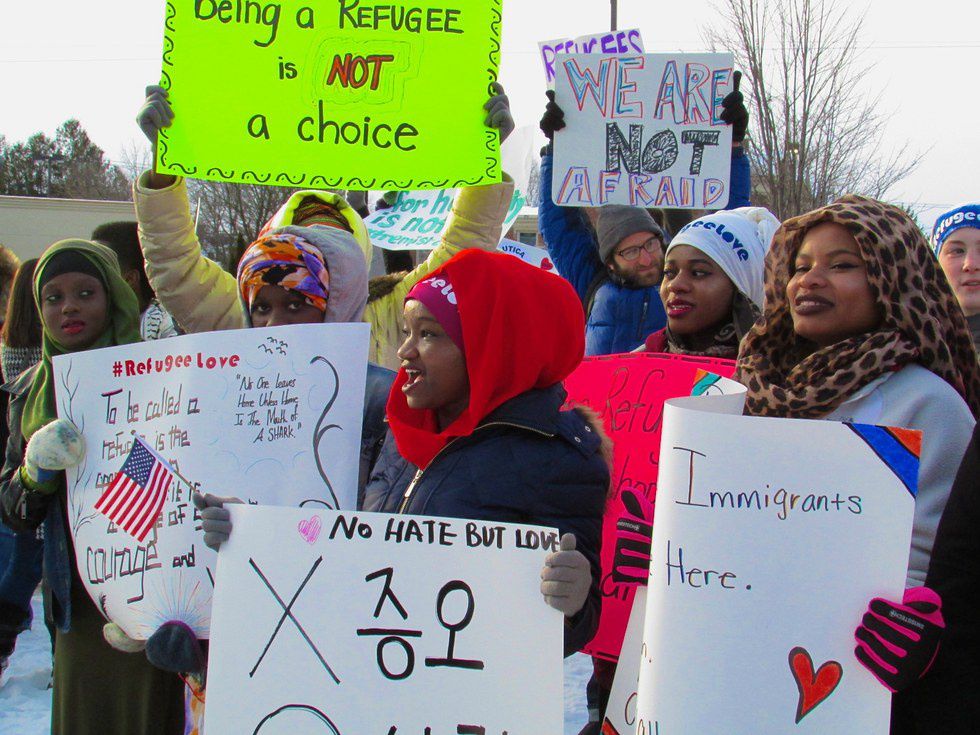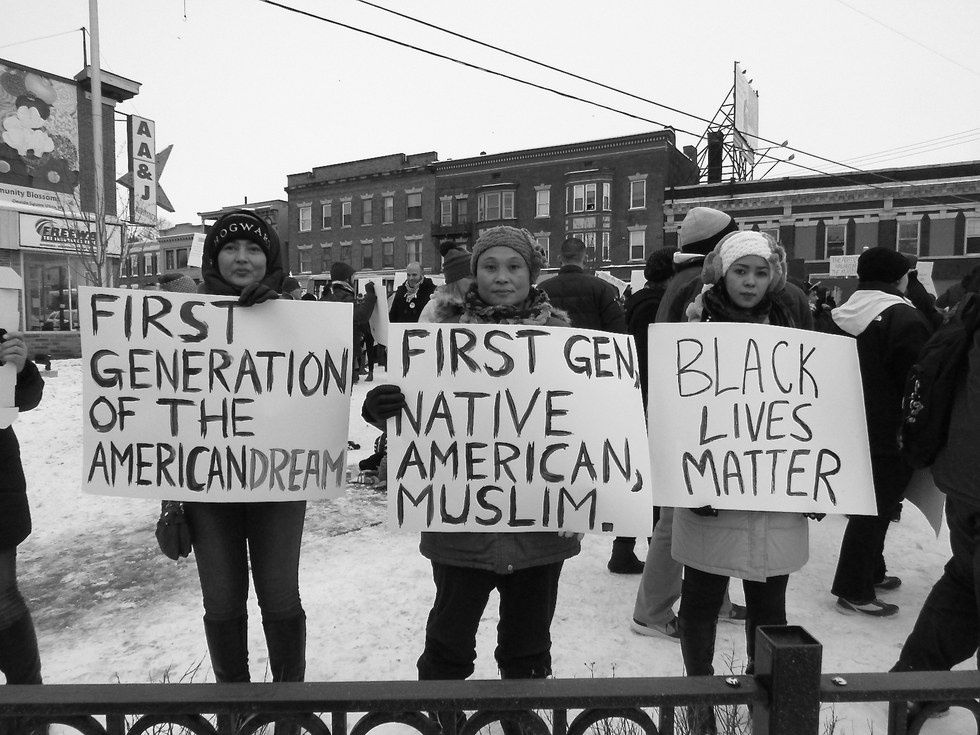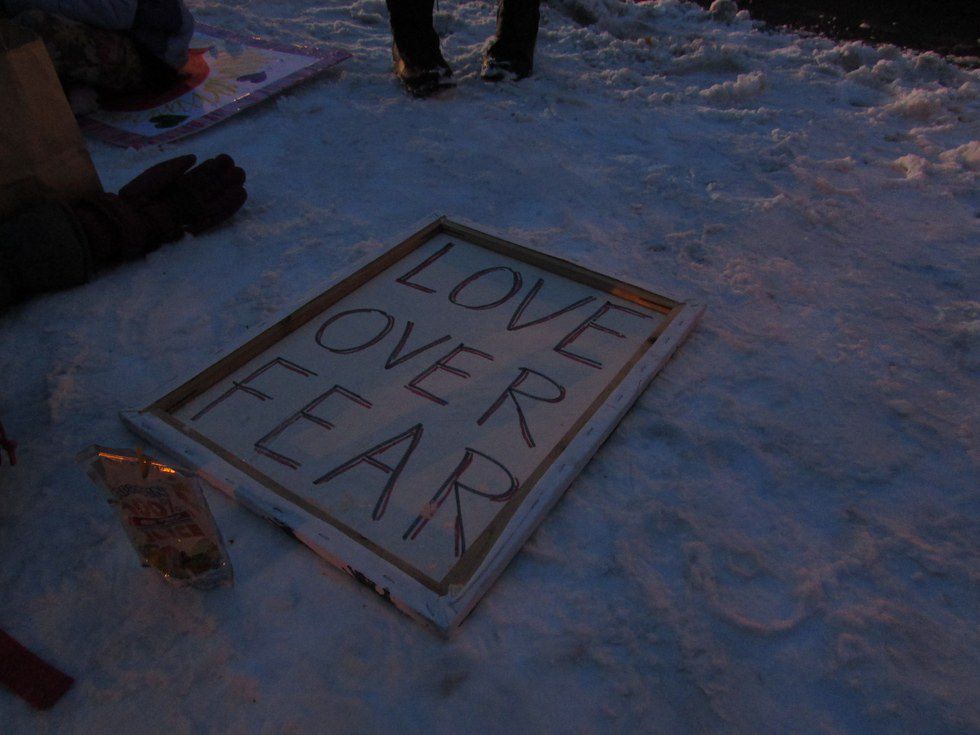Located in the heart of New York state is the city of Utica. Its small size but large refugee population has made it special in the controversy over the Trump administration's recent immigration ban. Like so many other cities in the United States, Utica has seen much of its developments, even its founding, come at the hands of people who were born in some other part of the world. To this day, Utica has been one the largest refugee centers in the country and according to an article by NPR (Utica, N.Y., Draws Immigrant Population) "Almost 40% of Utica's population is over 50, but the refugees are young. They're filling the schools and providing a needed workforce."
This young blood population of refugees/immigrants was joined by born and bred white Americans on Friday the 10th in a protest against the ban on immigrants from seven countries that include Iran, Iraq, Libya, Somalia, Sudan, Syria, and Yemen. An estimate by a New York State Civil Liberties Union volunteer sized the crowd at over 400 people. Many complained about the February cold snowy weather, however, the crowd continued to expand.
While the highly controversial ban has been suspended by the United States federal court, Americans are still somewhat divided as to how they feel about their nation's stance towards immigration. I asked one protester, Francis, about his feelings towards the argument that America is not a nation of immigrants and that we were a founded by settlers who admitted immigrants into this nation. He replied, "You know, I was reading the comment section of a news article the other day and it said America was founded by white Europeans, and I took issue with that because to say that America was founded by a certain group of people or was built by certain people implies that were done being built, right? This country's story continues to be built, continues to be settled. America's story does not end with the World Wars. It does not end with the last wave of European immigrants. It's a continuous story, always in progress, and these people [refugees] are the next phase."
As well put as his response was, others still argue that the recent instability in the Islamic world is a cause for fear of Muslim immigrants in the united States. Many Americans still remember the fear they felt on 9/11. So the question arises as to how these protesters feel about the threat of Islamic extremism. I asked a woman named Bonnie, who is white, born and raised in America, and has lived here for 60 years about how she reconciles her fear of terrorism with her compassion towards refugees. Bonnie told me, "Of course I'm afraid. Of course, there's good reason to be afraid. there's a lot of hate in the world. And we cannot counter hate with hate. We need to be able to counter hate with love. We need to be able to build alliances. we don't make the world safer by creating enemies."
The protest that took place was only one of many in what has become the new norm of this era. From the No DAPL demonstrations to the Women's March, it seems political activism has found a place among Americans. But will it last? Should the policies of the presidential administration stay the same, how long will Americans continue to demonstrate their concerns? For now, at least, there seems to be no end in sight of the people's discontent with the direction of the nation.
























